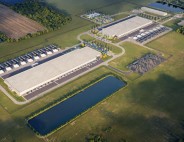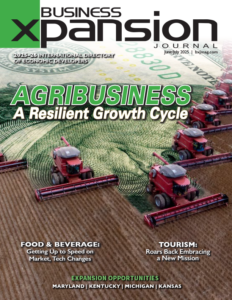
Re-made in America
25 Jul, 2017
Manufacturing is returning to the United States. In 2016, leading technology brands collectively announced billions of dollars in investments in U.S. manufacturing, creating hundreds of thousands of jobs and supporting the new concept of reshoring. But manufacturing today is not the same as when it left.
Gone are many of the large steel mills, auto plants and computer factories. In their place is a greater volume of small batch-manufacturing facilities from large enterprises, SMBs and start-ups providing specialization, customization and higher-end engineering.
What is starkly different from the previous linear economy epoch of smokestacks, landfills and post-industrial decay is that new manufacturing is lean, agile and supports a circular economy whereby waste is minimized and resources including components and materials are re-used, re-manufactured, refurbished and recycled.
“Globalization is no longer simply one-size-fits-all,” says Linda Li, Chief Strategy Officer at Re-Teck, the leading Reverse Supply Chain Management (RSCM) provider. “Effective globalization requires a global determination to cater to the needs, preferences and regulations affecting customers at a micro-level. This is entirely possible with data-supported insights and the array of customizable software and services and it’s leading to a new, exciting period of localized manufacturing in the United States by world-class brands.”
Li points out that many of these firms focus squarely on innovation as an existential differentiator and typically look to third parties to support their supply chain for innovation and manufacturing, and technical support for product lifetime and Reverse Supply Chain Management for when the product needs to be upgraded and replaced.
“The expertise and will to internally tackle such complex issues simply does not exist within the boardrooms of lean organizations,” Li says. “Re-Teck’s expertise, global network of RSCM facilities and global customer-base for components essentially liberates circular economy manufacturers from the pain, complexity and regulations of the old world. This means they can locate closer to their customers in the cities and towns of America”
Related Posts
-

GOVERNOR STEIN ANNOUNCES JETZERO SELECTS NORTH CAROLINA FOR $4 BILLION AIRPLANE MANUFACTURING HUB, CREATING 14,500 JOBS IN GUILFORD COUNTY IN LARGEST JOB COMMITMENT IN STATE HISTORY
-

MICRON AND TRUMP ADMINISTRATION ANNOUNCE EXPANDED U.S. INVESTMENTS IN LEADING-EDGE DRAM MANUFACTURING AND R&D
-

OTTO AVIATION ANNOUNCES NEW MANUFACTURING FACILITY AND HEADQUARTERS IN JACKSONVILLE, FLORIDA
-

TEXAS INSTRUMENTS PLANS TO INVEST MORE THAN $60 BILLION TO MANUFACTURE BILLIONS OF FOUNDATIONAL SEMICONDUCTORS IN THE U.S.
-

NVIDIA to Manufacture American-Made AI Supercomputers in U.S. for First Time
-

Metals Sector in St. Louis Region Thrives with $500 Million Investment
-

GE Aerospace to Invest Nearly $1B in U.S. Manufacturing in 2025
-

Entos Pharmaceuticals Announces $198.5 Million Partnership with the Governments of Canada and Alberta to Accelerate Biomanufacturing of Fusogenix PLV Next Generation Therapeutics
-

Regional Growth Partnership and JobsOhio Welcome Meta to Northwest Ohio with New $800 Million Data Center Announcement
-

TexAmericas Center Announces New Qualified Site









